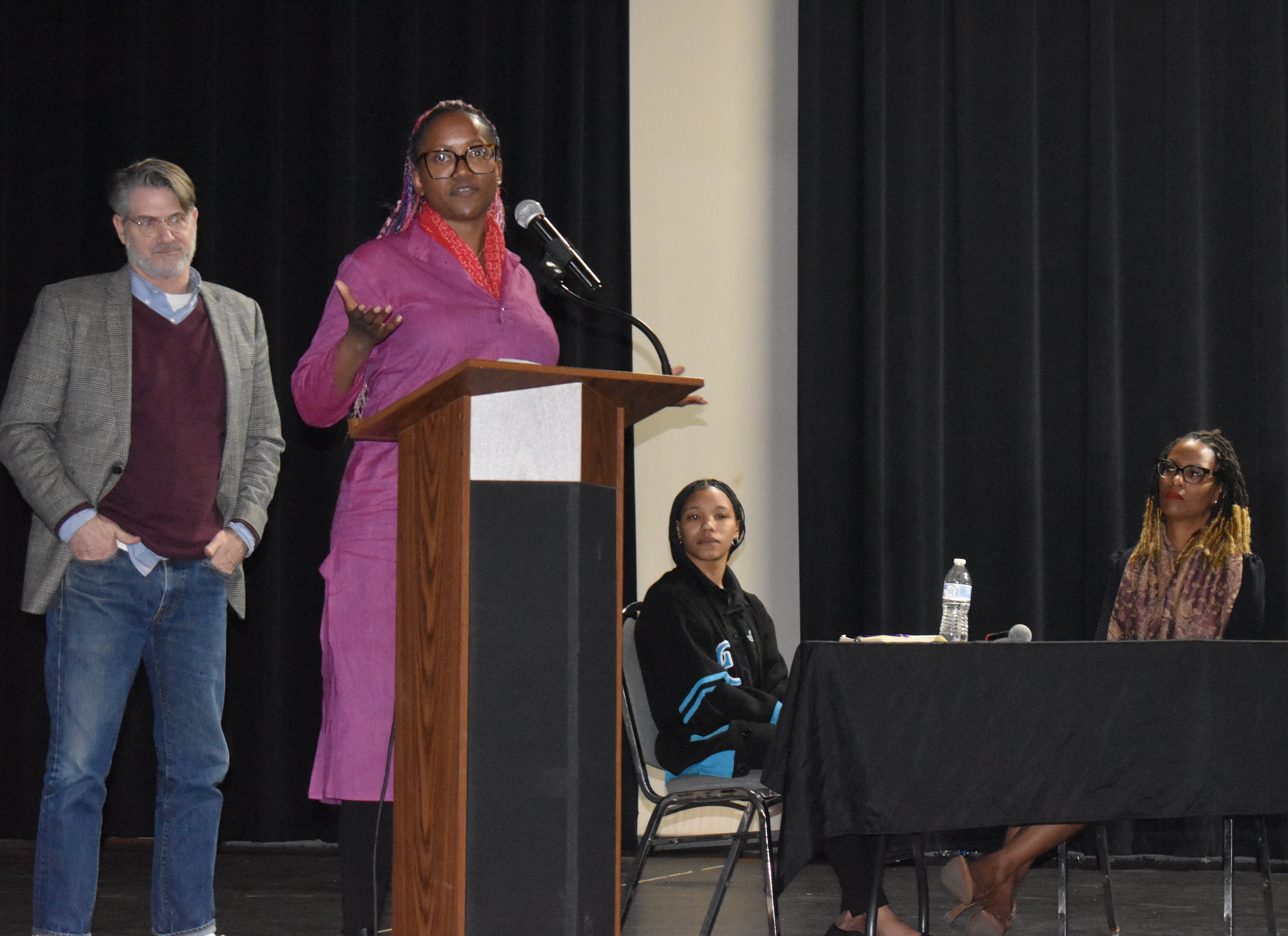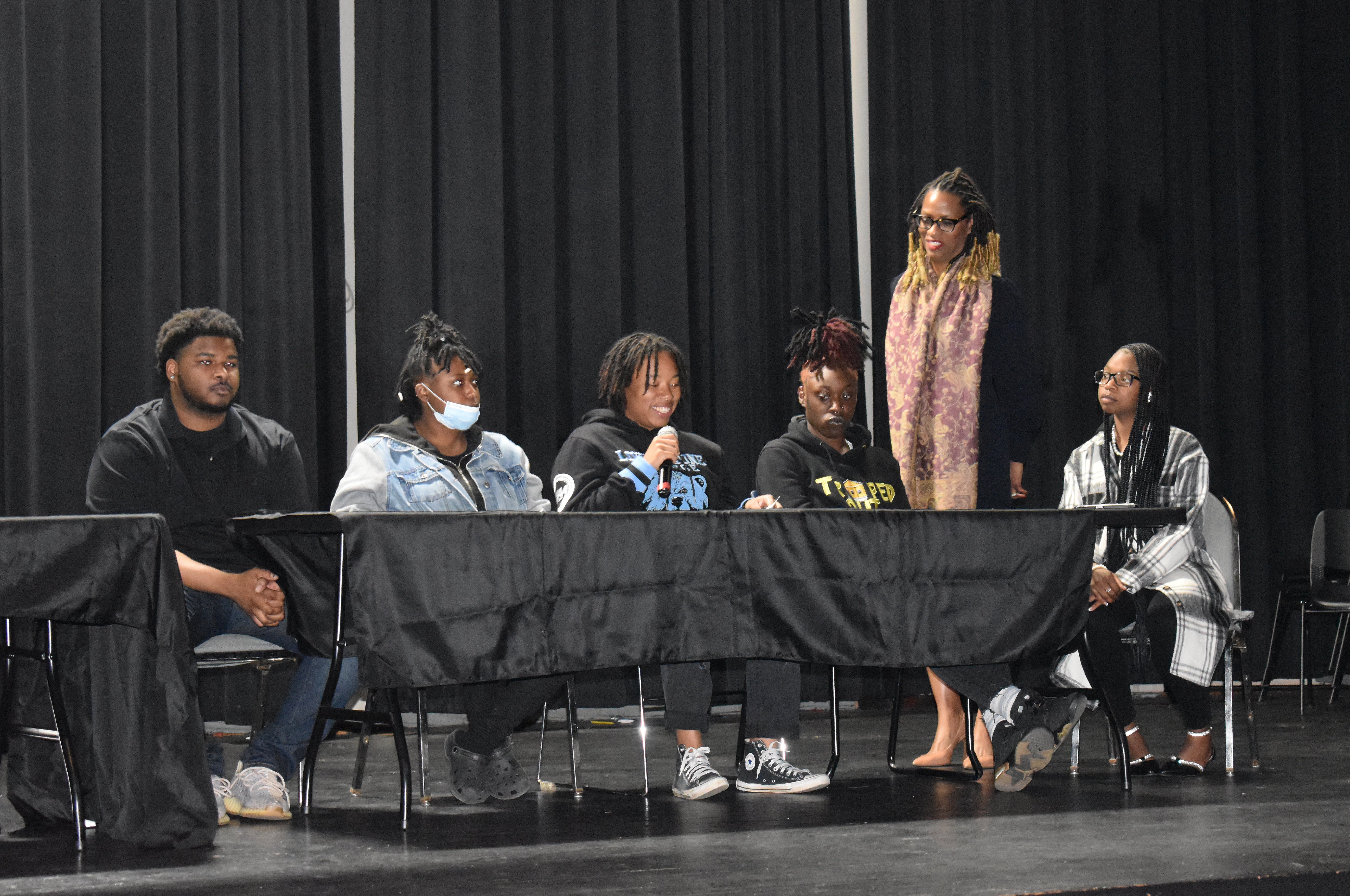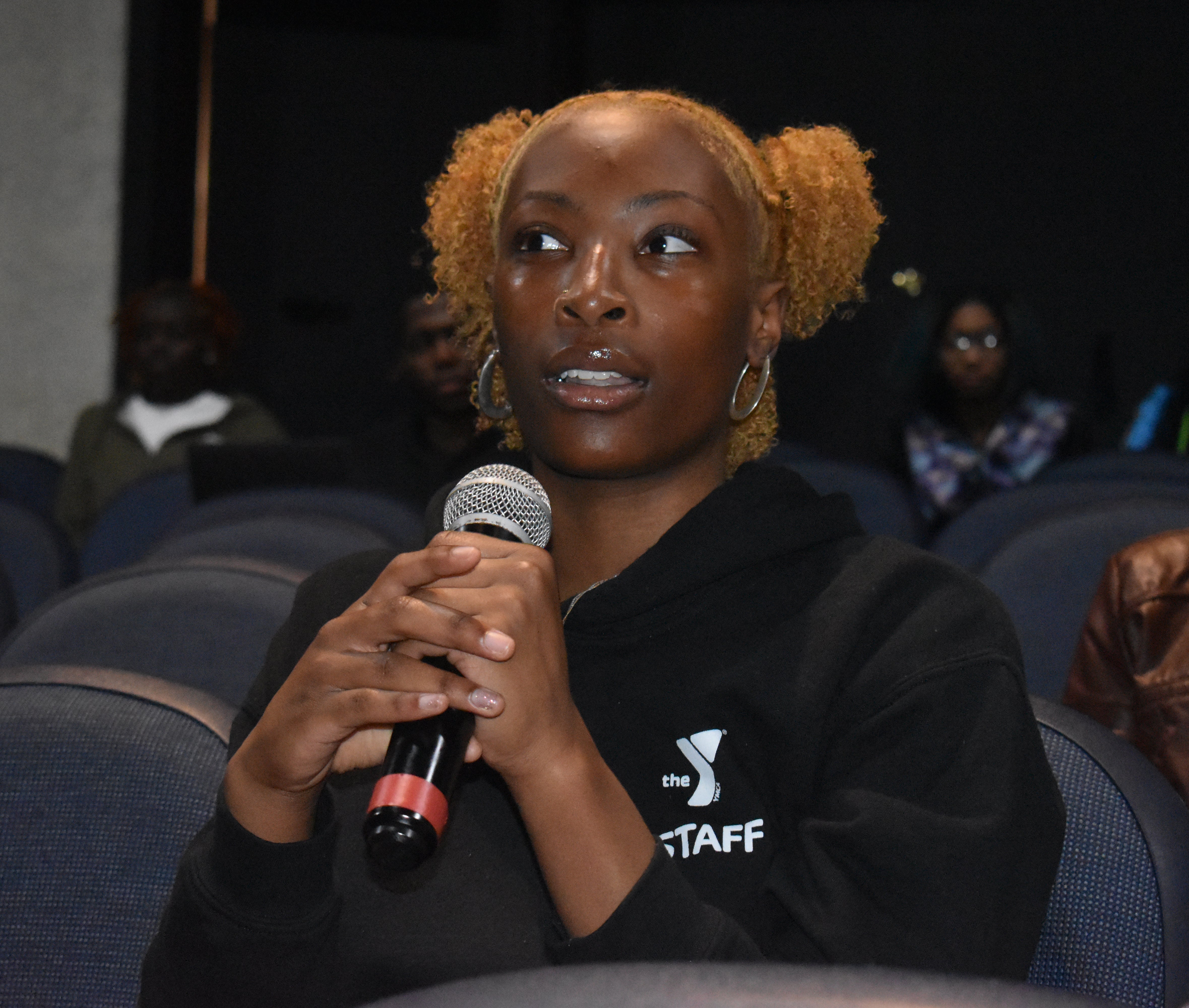Making the case: Livingstone College students take part in panel on government-funded reparations
Published 12:10 am Wednesday, March 22, 2023
SALISBURY — The case for reparations to descendants of enslaved Black people in America is not a new debate, but a cross-state tour kickstarted Monday in Salisbury aims to breathe new life into the movement.
Students at Livingstone College conducted a panel discussion on reparations with Erika Alexander, who co-directed her first film, “The Big Payback,” in the Tubman Little Theatre on campus.
Alexander is best known for her role as attorney Maxine Shaw on the television show “Living Single,” but she joined forces with Whitney Dow to found Color Farm Media, the team behind the documentary.
The film follows Alderman Robin Rue Simmons and her pursuit to pass the first government-funded reparations program in Evanston, Illinois.
“Look at this woman,” Dow said to the panelists on Monday. “She can be you, and you can be her.”
Reparations refer to compensation, which can come in many forms, to abused or injured subjects. In this case, reparations refer to efforts to reverse the impacts of discriminatory housing policies and job practices that disproportionately disadvantaged Black Americans.
“When America has a cold, Black people get pneumonia,” said Dr. Hasan Crockett, the Livingstone College liberal arts and humanities dean.
The basis for reparations goes as far as tracing enslaved people’s unpaid contributions to construct the United States from places of subjugation and bondage.
During the discussion, Crockett pointed out that reparations do not have to come in the form of money. They could be policies designed to reverse the systems that worked against Black Americans building equity or earning an education.
“Black people, for so many generations, were not allowed into schools due to the color of their skin,” said Nehkia Ray, a Livingstone student. “Imagine a white person going to school for nursing and wanting to become a doctor. Those people can leave behind generational wealth and real estate investment. Imagine the same person, but they were a Black person. How many generations does that leave without that wealth?”
Alexander described the era as the third period of Reconstruction.
The first period of Reconstruction occurred in the decades that followed the Civil War as the country sought to answer the question of what to do with millions of newly freed Black Americans.
As Alexander described it, the second period of Reconstruction occurred during the Jim Crow era when laws were policies established throughout the southern United States that legally enforced segregation. That period is considered to have concluded with the assassination of Dr. Martin Luther King Jr.
In the third era of Reconstruction, Alexander described the students at Livingstone and those in attendance as the architects of that era.
“We are here to spread the good news, and we all have the agency to do something about it,” Alexander said.
Printed on small pieces of paper and placed on the chairs in the theater for attendees were disparaging comments taken from Facebook in response to an advance piece about the reparations discussion that was posted last week.
“Lean into the criticism,” Dow said. “When I came in and saw all the comments, it hurt my heart. The other lesson from making the film is that this is fear. Those comments represent fear.”
Nailah McDowell, a Livingstone criminal justice and sociology professor, added, “Those comments confirm the necessity for having this conversation.”
Many of McDowell’s students made up the panel, which delved into discussions about education, wealth and even healthcare disparities, but the argument for reparations goes further.
“Reparations is more than an opportunity for slaves to get what was owed to them,” McDowell said. “We are the ancestors of people who built this nation, and we continue to deal with the threat of discrimination that shapes our culture in such a way we are owed reparations. The United States has paid so much reparations to other groups, whether they called it reparations or not. Look at the banks that have just been bailed out. That was reparations. If you can repair the damage that happened in Silicon Valley, you can definitely repair the damage that you continue to place in the Black community.”






